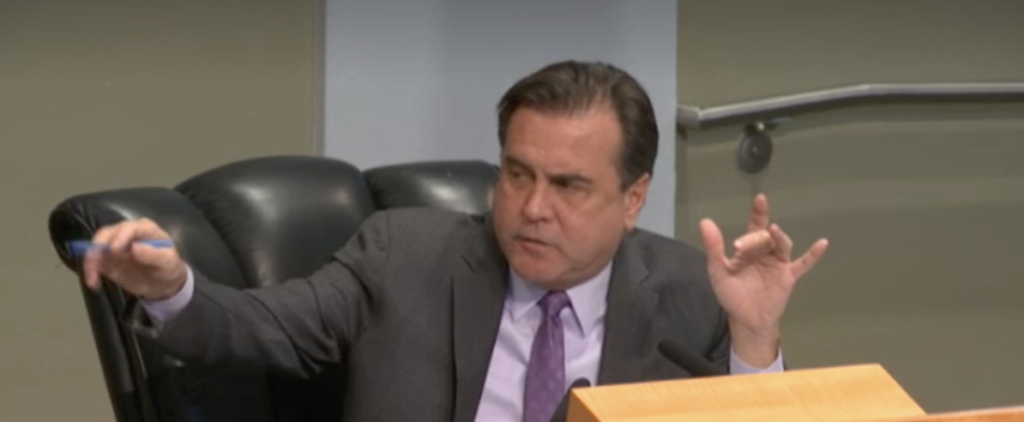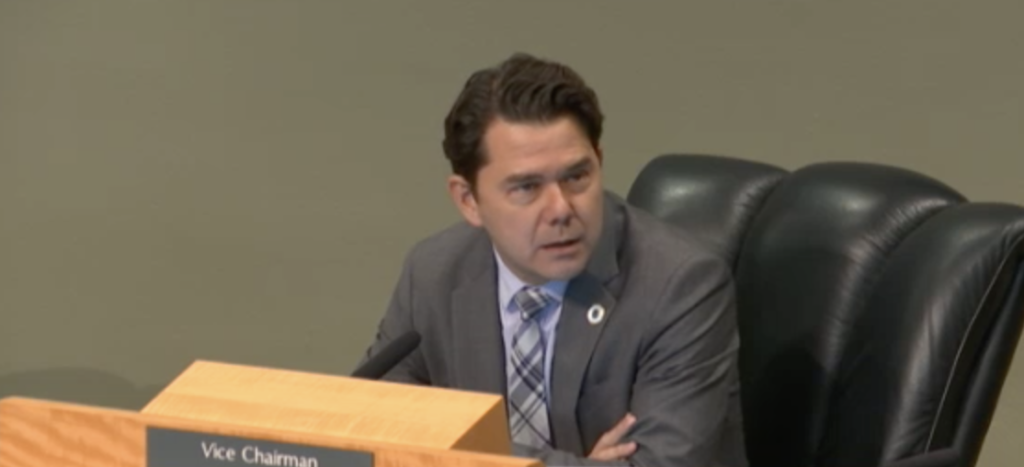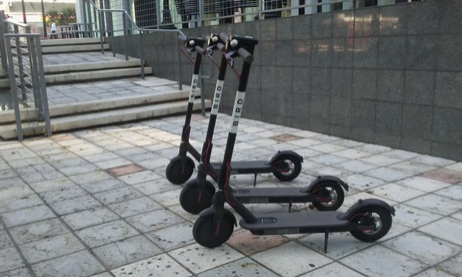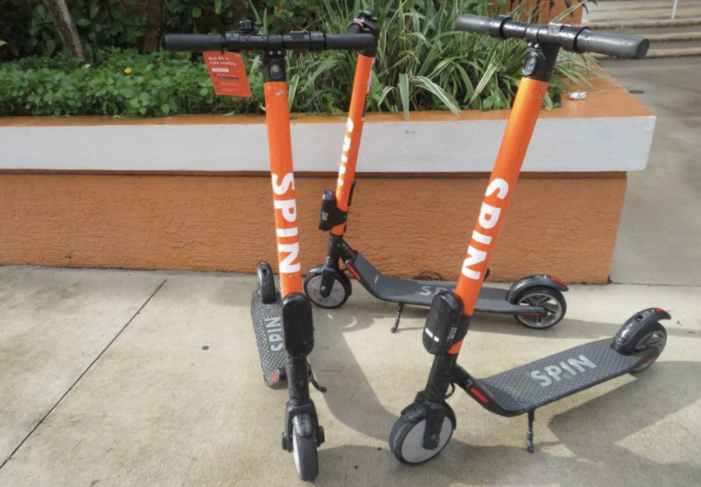Miami city commissioners reversed themselves Monday when they put electric share scooters — which had been banned 10 days earlier — back on certain urban streets, mostly in the downtown and Brickell area.
Commissioner and Chief Scooter Critic Manolo Reyes doesn’t want them in Flagami. He also was the only dissenting vote on the 3-1 passage. Joe Carollo was absent.
Pero… there are more safety measures. Even though some of them can’t be required until the commission passes an ordinance next month. These measures include:
- Fewer scooters on each block — cut in half from a maximum of four per company to a maximum of two per, or from 28 to 14 (apparently only seven companies are in the pilot program, out of the original nine).
- There will be speed limits of 10 MPH on the street, 7 MPH on sidewalks.
- Helmets are now required.
- Hours have been cut, with availability from 6 a.m. to 9 p.m. only.
- Seemingly most important: Riders will have to be 18 and over.
How are they going to make sure? That’s still in flux. The one thing that the commission didn’t really nail was the enforcement.
Read related: Miami’s ban on scooters is temporary and part of ADLP’s political playbook
They discussed it. They agreed that the police should not be distracted from real crime. But in the end basically said the firms providing the scooters have to police themselves. They never agreed on fines but will likely discuss those Dec. 9 at the first reading of a new ordinance.

“We’re going to stiffen the penalties,” said the new Commission Chairman (more on that later) Alex Diaz de la Portilla. Guess the details come later.
Acting Police Chief Manny Morales said he does not recommend having a dedicated unit on scooter patrol but said that the motor unit could look out for violations as part of their regular traffic enforcement. Commissioner Ken Russell said there was an arrangement where the Miami Parking Authority would get $25 for every wayward scooter it reported, but that it has not taken advantage of that brand new income stream, which is apart from the $2.3 million that that city has gotten from the program since 2018.
What? I’ll do it. Can Ladra get $25 for every scooter found dumped on the side of the road or sidewalk? Let anyone and everyone get $25 via Venmo for every scooter and that will take care of the dumping enforcement.
Apparently the scooter companies are willing to pay it. This is not a child’s game. This is a ride to the bank. If the companies generated $2.3 million for the city in the past four years, can you imagine how much they generated for their pockets? So the RFP that is going to be reviewed in January is big business that each of the companies is working for — hard.
As a man representing the Downtown Neighbors Alliance noted, ironically: “We can call a special meeting on scooters, but we can’t call a special meeting on flooding on Biscayne Boulevard. Okay.”

Among the lobbyists for the scooter companies are former State Rep. Jose Felix “Pepi” Diaz for Bird, who spoke at Monday’s special meeting, John Conforme for Wheels, who also spoke, and Elnatan Rudolph, a longtime partner of Commissioner ADLP’s, for Spin, who did not speak.
While some companies said they would need up to two weeks to be able to meet the new conditions, Pepi Diaz — who beat Diaz de la Portilla in a Republican primary for senator in 2017 (then lost to Annette Taddeo) — told commissioners that his client was prepared to get started again immediately because they already have thousands of helmets distributed in Miami. Ignacio Tzoumas, CEO of Bolt Mobility, said they can even require the rider take a selfie with the helmet before they can start riding “that proves you have it on.”
But can they make sure riders keep the helmets on? What’s stopping someone from taking a selfie and then taking the helmet off? And if there’s a “clutter” problem with the scooters, why does anyone think Miami users will act responsibly with the helmets?
Because helmets are not required by Florida law, the city has to pass an ordinance, said City Attorney Victoria Mendez, who will come back with one on Dec. 9. There was some back and forth between Tricky Vicky and ADLP about whether or not this constituted a new program or just changes in the old program. Mendez, who said it was not a new program, won.
Read related: Can’t get to the polls? Lime provides scooters for voters in Miami election
She also assured commissioners that the city had no liability in the case of lawsuits. The contracts with the firms “hold us harmless” and the companies handle all the legal issues. “The city has not paid out anything on these claims,” Mendez said.
New commissioner Christine King isn’t sure the city is getting all the information. She has seen people fall off the scooters because they don’t have any knowledge on how to use them. Not all accidents are reported, she said. “So we don’t have the statistics.
“Profitability cannot be a deciding factor in keeping our community safe,” King said.
Kevin Amézaga of the Miami Riders Alliance reminded commissioners that there are still private scooters and that the ban doesn’t end scooter ridership. He said improvements in enforcement language and more dedicated scooter parking would also help alleviate most issues.

There was a brief debate about having scooters on streets only, but Russell said that would make it less safe for some riders. There have been no fatalities and part of the reason, he said, is because the city allows scooters on sidewalks.
Surely, there will be more hurdles come Dec. 9 and it will be fun to watch the RFP process next year. But Monday’s reversal of fortunes had some scooter firms riding high.
“This news comes as a relief to Miami residents who’ve long relied on e-scooters as a safe, affordable and sustainable way to get around,” said Bruno Lopes, Senior Manager for Government Relations at Lime.
“We look forward to working closely with the commissioners and Mayor Suarez to develop a permanent program that prioritizes safety for riders and non-riders alike,” Lopes added. “We specifically hope the city will continue to invest the millions of dollars in e-scooter fees Lime and other operators pay into protected bike lanes, the most proven way to ensure the safety of all road users.”

